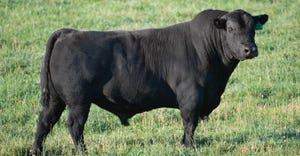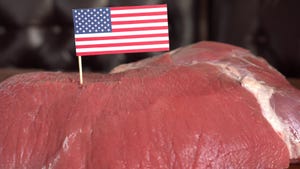Survey measures veterinary recommendations
Study in US and Canada asks vets about vaccine protocol, health and production practices for cow-calf operations.
June 4, 2018

Nearly 150 veterinarians from 35 states in the United States and three provinces in Canada have shared in a recent survey some of their most common recommendations to beef cow-calf operations.
A group of professionals from across the industry surveyed practicing veterinarians (n = 148) who service commercial beef cow-calf herds across the area described about their recommendations made to their clients in terms of vaccine protocol, health and production practices.
They found more than 50% of responding veterinarians devote over 50% of their practice to service commercial cow-calf producers. They found 33% of these veterinarians have been in practice for over 30 years. They also learn 39% percent of responding veterinarians serviced more than 10,000 cows.
Here are eight common findings from survey respondents.
Genetic advice is provided by 54% of practicing veterinarians.
When vaccinating at branding, the most common recommended vaccines are clostridial (96%), infectious bovine rhinotracheitis (IBR; 94%), bovine respiratory syncytial virus (BRSV; 91%), parainfluenza-3 (PI-3; 90%), and bovine viral diarrhea (BVD) Types 1 and 2 (78 and 77%, respectively).
When vaccinating before weaning, the most common recommended vaccines are IBR (99%), BRSV (98%), BVD Types 1 and 2 (96%), PI-3 (93%), clostridial (77%), and Mannheimia haemolytica (77%).
When vaccinating after weaning, the most common recommended vaccines are BVD Type 2 (97%), IBR (97%), BVD Type 1 (96%), BRSV (96%), and PI-3 (91%).
More than 60% of responding veterinarians recommended that the last preventive vaccine should be administered to cattle 7 to 21 days before shipping.
The largest number of respondents (38%) recommended that the earliest age their clients should wean their calves is 90 to 120 days.
Castrating bull calves at an age of 0 to 7 days was recommended by 34% of respondents.
Calf nutrition is considered extremely important during a preconditioning program by 82% of responding veterinarians.
Source: The Ohio State University
You May Also Like

.png?width=300&auto=webp&quality=80&disable=upscale)

